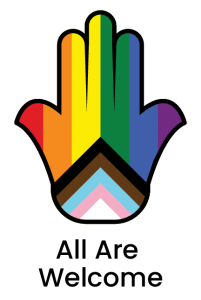BUILDING CONNECTIONS, INTERLACING VALUES, RESPECTING INDIVIDUALITY
We view children as “Constructivist Learners” who are competent and capable, full of potential, and invested in their quest for knowledge. As partners with parents, our Early Childhood Educators provide provocations for sensory-rich learning, create classroom environments for inquiry, are professionals knowledgeable in the developmental stages of children, and dedicate themselves to ongoing research and training. This is all part of a dynamic continuum of family learning that supports life-long critical thinking skills and serves as the cornerstone for larger social change and personal growth.
OUR VALUES-BASED CURRICULUM
In the ECP, children attain school readiness and academic skills through a play-based, evolving learning environment based on individual interests.
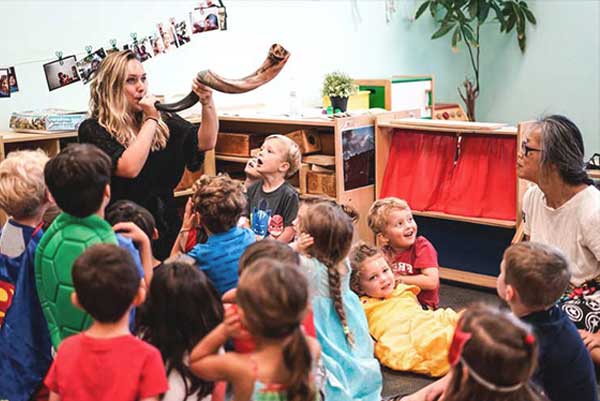
We use positive guidance and redirection to foster cooperative learning, self-control and facilitation to teach questioning strategies and a thirst for knowledge. Every day, children experience Judaic enrichment, hands-on sensory exploration, open-ended connections with trained educators, project-based learning, STEM (science, technology, engineering and math) activities, music, literature, and a focus on the process of art. Educators document these learning experiences for parents on bulletin boards, during parent/educator conferences, and through annual portfolios. The ECP continuously promotes excellence by including parents and extended families in inter-departmental Jewish events and celebrations and by ensuring children gain:
- Self-confidence and a positive self-image
- Enthusiasm for the learning process
- Effective problem-solving strategies
- Complex skills in the social, emotional, cognitive, and physical areas of development
- Respect for others and their own bodies
- A feeling of group belonging and community connectedness both locally and globally
- Values to use for self-guided direction
Jewish Values
The ECP teaches Jewish values through modeling, the use of books, discussions, and class projects appropriately focused at each age group. The whole school focuses on tzedekah (giving to those in need) and tikkum olam (caring for the world, our society and environment, both locally and globally). From year to year, ECP children build upon their prior knowledge. All ECP children focus on Shabbat, Tzeddakah, and creating a personal connection to Judaism to carry through life. We also infuse children’s learning with developmentally appropriate Jewish values as they connect to the Jewish calendar, such as:
Mishpacha (love of family)
Shalom (feeling peace)
Shalom Bayit (peace in the home and classroom)
Bal Tashchit (do not destroy needlessly)
Hachnasat Orchim (welcoming guests)
Saver Panim Yafot (cheerfulness)
Kibbud Horim u Morim (honor parents and teachers)
Derech Eretz (common courtesy and respect)
Hiddur P’nay Zakken (honoring the elderly)
K’vod Ha’anee (respecting the poor)
CURRICULUM DEVELOPMENT FOUNDATIONS
We believe that children flourish in a stimulating environment and have a multitude of leaning “languages” – clay, dancing, inventing, singing, dramatic play, painting, drawing, reading, to just name a few. As such, we provide them with a host of provocations, opportunities, and “loose parts” to foster their interests and discoveries.
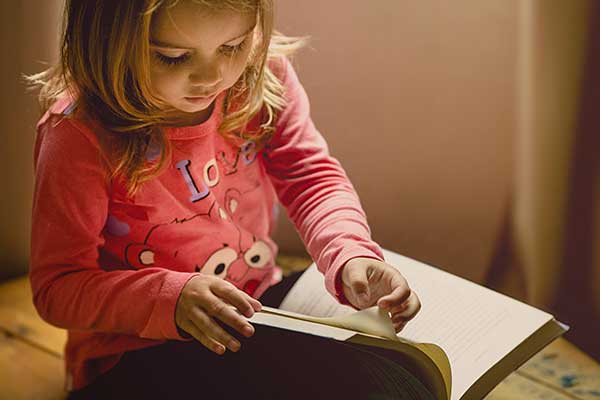
The following are some of the subject areas that we incorporate into our weekly lesson plans and classroom environments for the children:
- Judaic Enrichment
- PJ Library: Judaic & Literacy Support
- Science and Nature
- Technology and Engineering
- Art
- Math
- Music
INFANTS
Six weeks to 12 Months
Early Care: 7:30 – 8:00 AM
School Day: 8:30 AM – 5:30 PM
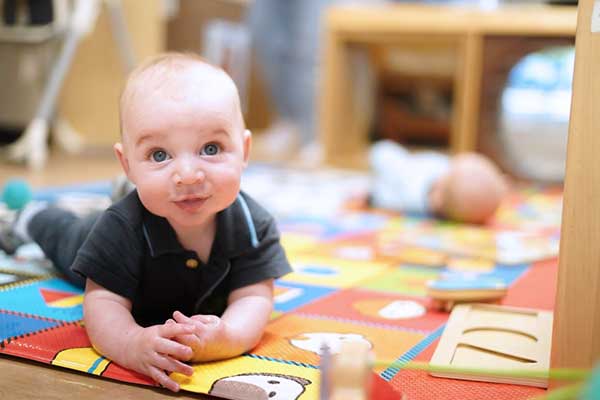
The ECP infant program provides a warm, nurturing atmosphere in which educators engage and talk with children as they care for their needs and teach through play. They are cared for in a manner that assists them in developing trust in their surroundings and their educators. Infants have stable, consistent routines that are based on their own schedules for eating, resting, and playing. Educators foster language development through stories, songs, verbal interactions, as well as beginning baby sign language.
Music, outside time, buggy trips, sensory play, and art discovery activities occur daily and are documented both inside and outside of the classroom through daily reports, bulletin boards, weekly lesson plans, semester assessments, and annual portfolios.
Developmental Goals
- Develops attachment to educators, is anxious with strangers, self-soothes, seeks attention with noise or gestures
- Gains sense of self (i.e. responds to own name), reacts to mirrored images, enjoys social play
- Acquires language by responding to sounds and some words (i.e. no), babbles with inflection, uses exclamations (i.e. oh-oh, bye-bye), says “dada” and “mama” for specific person
- Uses hand signs for some objects
- Increases large motor skills including rolling over, crawling, standing, walking, and raising hands over head
- Develops fine motor skills including grasping, scribbling, banging, finger feeding, and drinking from a sippy cup
- Understands cause/effect and object permanence
- Sits at a table
TODDLERS
12-24 MONTHS
Early Care: 7:30 – 8:00 AM
Core Day: 8:30 AM – 2:30 PM
Extended Care ends at 5:30 PM
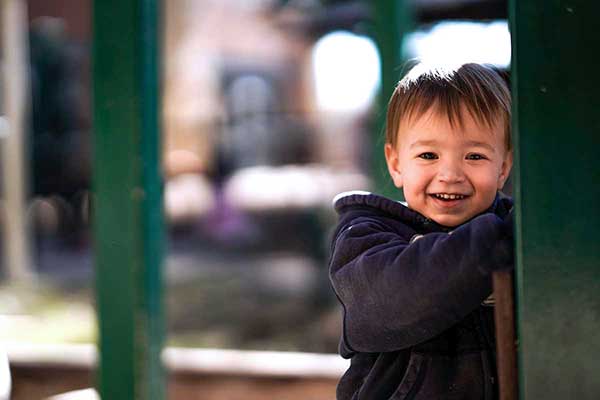
ECP toddlers are encouraged to develop independence while maintaining a personal and community sense of security. Planning for this age group includes many sensory, language development, social, fine and gross motor skill activities.
Educators expand upon each child’s knowledge base and help them to internalize the skills of observing, gathering information, inquiring, and improving communication. Connections to art, music, movement, and nature are built during this process, as well as a beginning sense of helping others.
Developmental Goals
- Self-help skills including seating self in chair, trying to open lunch box/items, using a spoon, removing/putting on some items of clothing (i.e. shoes, socks, hats)
- Makes independent choices regarding play, engages in parallel play, and begins to enjoy peer play
- Develops a sense of confidence and self-worth
- Awareness of others and their feelings
- Expresses emotions appropriately, awareness and beginning control of aggression
- Names familiar objects, expresses physical needs (i.e. thirsty, hungry), uses 2-3-word sentences, sings songs
- Fine motor skills including clapping, stacking, raising lids, stringing, completing 2-3-piece puzzles
- Throws and kicks a ball, runs, rides small riding toys, pulls and pushes toys
- Curious about surrounding world and uses imagination in play
- Imitates behavior of others, especially adults and older children
TWOS AND THREES
Core Day: 8:30 AM – 2:30 PM
Extended Care ends at 5:30 PM
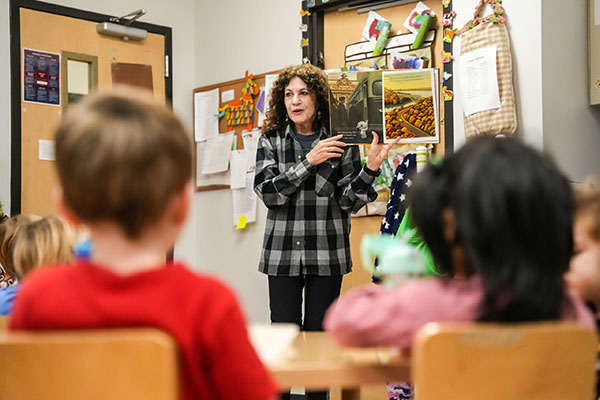
Daily activities for children in the two and three-year-old programs are based upon projects and units of study that are interesting and meaningful to those children. A balanced schedule provides experiences in group and individual settings and includes stories, music, language experiences, natural discovery, and inquisitive discussions that include research. Individually, children choose learning center activities where they can work and play alone, in pairs, or in small groups.
Classrooms are arranged into centers that include educational toys, materials, and games based upon age appropriateness and the interests of the children. These include centers for books, blocks, sensory materials, art, puzzles, math, science, and dramatic play. Children can work and play in these centers individually, with a friend, or in small groups. Choosing centers provides practice in making decisions, following directions, working independently, and learning about the care and use of materials.
Outside time offers opportunities for gross motor development (climbing, running, jumping, pedaling, and building, for example), social interactions, as well as a chance to experience weather and seasons. Children can also experiment with sand and water during these outside periods.
Daily group times provide opportunities for your child to learn in a large group setting. Group lessons include stories, music, gross motor activities, language experiences, and discussions including questioning and research. Additional activities include cooking, growing plants, nature interactions, and having visitors share information about the unit studies. Children will also have opportunities for music, creative movement, tumbling, and other large motor activities. Children learn language, science, and math skills through experiential and integrated play and projects.
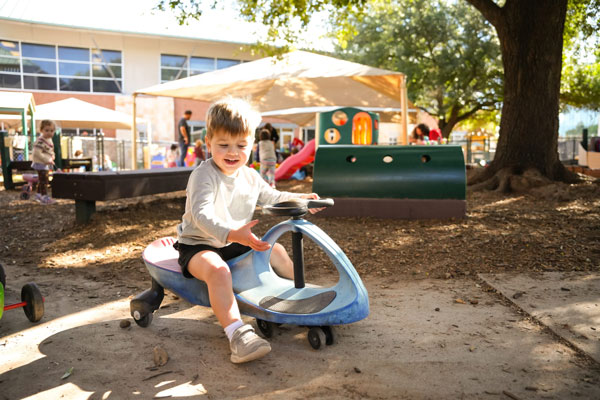
Developmental Goals for 2-Year-Olds
- Self-help skills including manipulation of clothes for toilet and developing toileting skills when ready
- Asks and answers questions
- Makes independent choices regarding play 10
- Enjoys peer play, begins to share/cooperate
- Beginning to use words instead of physical aggression when upset
- Names familiar objects and expresses ideas, expresses physical needs (thirsty, hungry, etc.), uses 4-5-word sentences, repeats songs, rhymes, finger plays
- Enjoys books, can turn single pages independently, and is attentive when stories are read
- Large motor skills including climbing, running, jumping, rolling and catching a ball, pedaling a tricycle
- Fine motor skills including grasping with fingers, completing 3-5-piece puzzles, stirring with a spoon, painting with brushes
- Curious about surrounding world
- Uses imagination in pretend play
- Developing ability to solve problems independently
Developmental Goals for 3-Year-Olds
- Begins to care for personal needs (bathroom skills, dressing self, independently washing hands)
- Shows pride in accomplishments and follows established classroom rules and routines
- Demonstrates appropriate self-control, understands personal space boundaries, and transitions with ease between activities
- Draws a person with 2-4 body parts, draws circles and squares, uses scissors
- Cooperates with others during play
- Begins to offer and accept affection and empathy
- Uses language to express emotion including anger, frustration, and sadness
- Recognizes and can repeat sound patterns, uses language to recall a sequence of events, speaks clearly enough for others to understand
- Begins to understand time-related vocabulary and makes size comparisons between objects using language
- Enjoys books, listens to two stories consecutively
- Climbing, running with coordinated movement, walking backwards, throwing a ball overhand, catching a bounced ball, beginning hopping and standing on one foot
- Fine motor skills including drawing, cutting, 5-20-piece puzzles
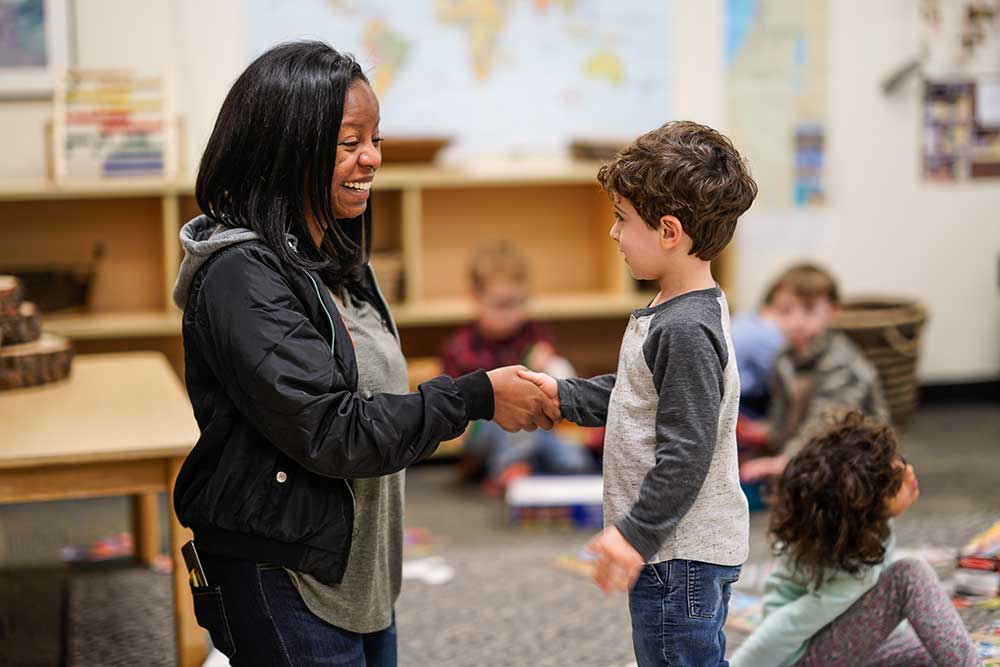
PRE-K
Core Day: 8:30 AM – 2:30 PM
Extended Care ends at 5:30 PM
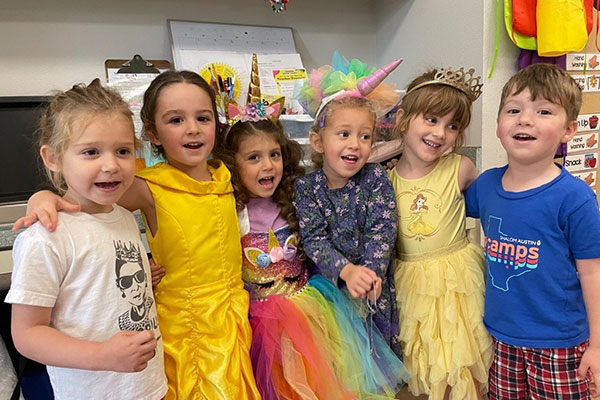
Educators provide a rich learning environment for the children in the Pre-K program including many sensory experiences, hands-on activities, language immersion opportunities, and Kindergarten readiness integration. Children construct their own learning and knowledge from the endless opportunities and the guidance provided by the educators. This special learning environment is a product of our philosophy of the image of each child as competent, capable, and curious.
Educators also provide children with integrated opportunities to practice learned Jewish ethics and values each day through lessons on the Jewish holidays, books, games, rituals, and customs. Pre-K educators also meet each year with local kindergarten educators to discuss student expectations and recent educational developments.
Schedules for each Pre-K class include both large and small group times as well as times for individual choice in centers and on the playground. Children learn to follow directions and transition between activities. These transition times are turned into learning opportunities when educators count in English and other languages, and teach about opposites, colors, self-awareness, and much more.
Children in the PreK program periodically participate in shared activities with Austin Jewish Academy students, such as Jewish holiday observances and celebrations. Educators work with the children to develop and create a class science experiment and presentation using the Scientific Method throughout the year.
In support of this learning, our educators provide the following for the children:
- A print-rich environment to promote both reading and writing
- Writing tools, paper of all types, and places and opportunities to create and write. Examples include but are not limited to journals, cards, name tags, documentation of children’s thoughts, letter of the week bags, “what if…” prompts, and self-developed stories
- A variety of stories and texts and associated meaningful discussions
- Phonological awareness by singing songs, reciting chants, making up rhymes, and learning finger plays
- Advancement in both small and large motor skills by involving children in the creation of routines, activities, and experiences that build hand-eye coordination, visual perception, auditory perception, and auditory discrimination
- Science experiments and discovery using the Scientific Method, as well as cooking projects, and exploration of nature
- Math experiences and discovery including counting, geometry, grids and coordinates, patterns, and sequencing
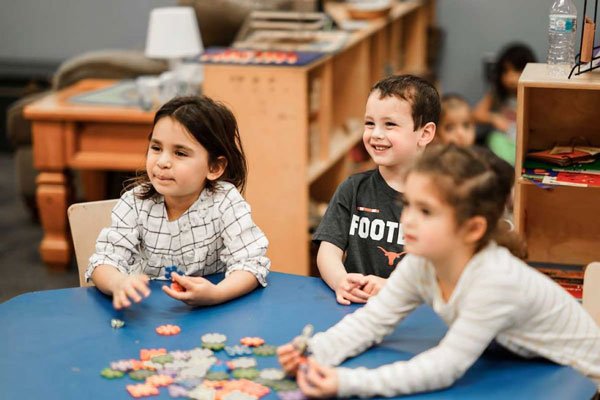
Developmental Goals
- Knows and verbalizes personal information (first name, last name, parent’s first and last names, address, and phone number)
- Associates use with common objects (money, food, appliances), groups items by a particular characteristic
- Recognizes letters and their corresponding sounds and recognizes, spells, and writes full name
- Speaks in grammatically correct sentences most of the time and uses complex sentences to express thoughts, feelings, and to answer questions
- Understands past, present, and future
- Asks for help when needed, negotiates solutions verbally to resolve conflicts, enjoys engaging with other children, and is able to both lead and follow the group
- Expresses needs and preferences clearly and appropriately, shows interest in and actively participates in various classroom activities (independently and in groups)
- Demonstrates opposites and their meanings, recites parts of songs, rhymes, stories, and finger play games
- Enjoys books and is also able to retell familiar stories
- Recognizes and selects healthy foods
- Becomes aware of investigative processes using scientific methods
- Sorts and compares objects by size, length, weight, area, and temperature and begins to identify the position of objects in a series
- Kindergarten readiness skills
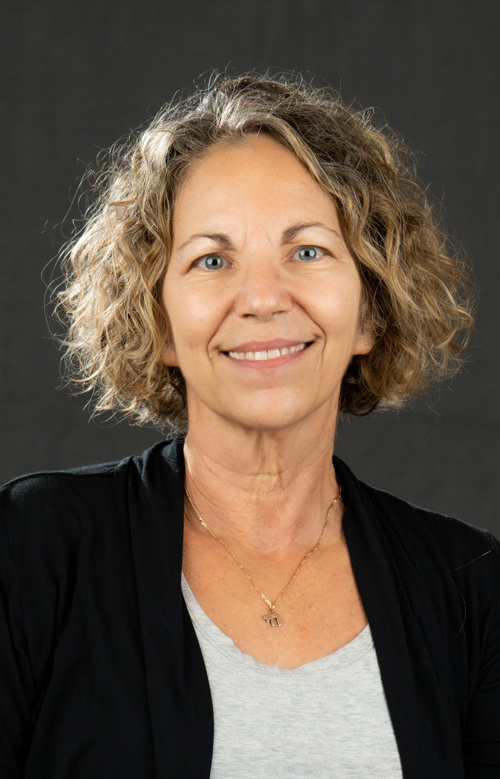
CONTACT US
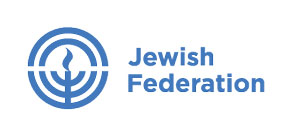
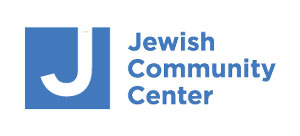
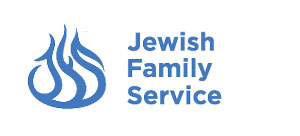
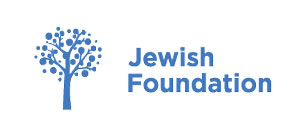
HEALTH & WELLNESS
Fitness
Swimming
Tennis & Pickleball
Sports
EDUCATION
Jewish Culture & Education
Early Childhood Program Preschool
After School & Childcare
Camps
ARTS & CULTURE
Literary Arts
Visual Arts
Theatre & Film
Dance
COUNSELING & SUPPORT
Jewish Family Service
Counseling & Groups
Case Management
References & Resources
Copyright Shalom Austin 2025. Privacy Policy.
